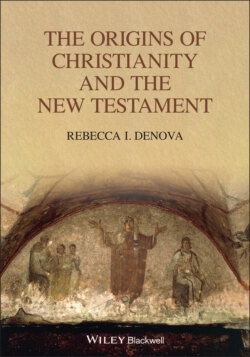Читать книгу The Origins of Christianity and the New Testament - Rebecca I. Denova - Страница 21
Gentiles and Pagans (Problematic Terms)
ОглавлениеThousands of native cults and religious associations dotted the landscape. One word cannot represent them all. What we have in the Bible is the Jewish point of view that identified themselves over and against all others.
Translations of Bibles in English are somewhat tricky. In the Jewish Scriptures, all non-Jews are collectively identified as “the (other) nations,” from the Hebrew, goy or goyim (plural). Depending upon the context of the passage, this term is sometimes translated as “stranger” or “foreigner.”
In the New Testament, the word for “nations” is ethnos, referring to different “ethnic” communities. Through late Middle English (and through the King James Bible), the common translation became “Gentile” from the Latin gens, family or clan, for both goy and ethnos. “Gentile” simply means someone who is not Jewish.
However, a more popular term came into being when Christians began to dominate and rule the Roman Empire. In the late fourth century, “pagan” became the term for anyone who was not Christian or Jewish. From the Latin paganus, it was a derogatory term for people in the hinterlands who had not converted to Christianity (equivalent to “hillbillies”). Many of the native cults focused on nature and fertility rituals. In the second century, the Church Fathers demonized these people, applying scathing reviews of their lifestyle and behavior that are still conjured up when we see the word “pagan.” This includes sexual orgies, drinking, and sometimes Satan worship. In this text, “native” or “ethnic” cult is the term of choice, although you will find “pagan” in many of the Suggested Readings.
The inheritance of Biblical texts in Western culture provided the raw material for criticism of the native cults, beginning with the books of the Prophets. These writers continually railed against the worship of other gods as idolatry (the worship of icons, or images). Christians utilized these texts in their literature, which contributed to the overall view that such practices created anxiety: too many gods, too many myths, too many empty rituals, and an absence of spirituality for individual salvation. It is important to note that there is no historical evidence for such “anxiety” in the ancient world. Nevertheless, there are dozens of new books that continue to explain the rise and “triumph” of Christianity in the Roman Empire based upon this theory.
